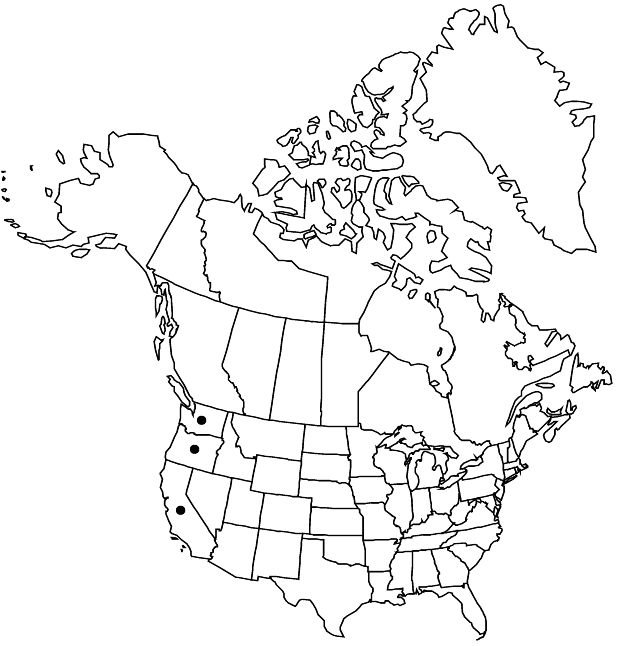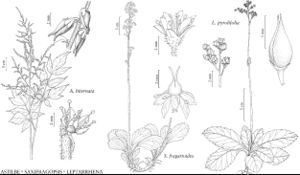Difference between revisions of "Saxifragopsis fragarioides"
Bull. Torrey Bot. Club 23: 20. 1896,.
imported>Volume Importer |
imported>Volume Importer |
||
| Line 58: | Line 58: | ||
|publication year= | |publication year= | ||
|special status=Illustrated;Endemic | |special status=Illustrated;Endemic | ||
| − | |source xml=https:// | + | |source xml=https://bitbucket.org/aafc-mbb/fna-data-curation/src/2e0870ddd59836b60bcf96646a41e87ea5a5943a/coarse_grained_fna_xml/V8/V8_260.xml |
|genus=Saxifragopsis | |genus=Saxifragopsis | ||
|species=Saxifragopsis fragarioides | |species=Saxifragopsis fragarioides | ||
Latest revision as of 22:42, 5 November 2020
Plants forming loose mats from trailing rhizomes. Leaves: petiole 1.5–4 cm; blade 1.5–4 cm. Inflorescences 6–25 cm, stipitate-glandular; bracts subtending pedicel scalelike. Flowers: hypanthium campanulate, 1 mm, sparsely to moderately stipitate-glandular; sepals spreading to reflexed, triangular to ovate, 2 mm, apex acute to rounded; petals spreading, obovate to oblanceolate, 1.5–3 mm; stamens included, 1 mm; styles included, 0.8–1 mm. Capsules brown, ovoid, (3–)4–5 mm. Seeds 50–75. 2n = 14.
Phenology: Flowering Jun–Aug.
Habitat: Rock crevices, talus slopes
Elevation: (500-)1500-3000 m
Distribution

Calif., Oreg., Wash.
Discussion
Saxifragopsis fragarioides is nearly limited to the Siskiyou Mountains of California and Oregon; disjunct populations have been found in Washington (S. Gage 1992, 1995). The known colonies in Washington are at about 500 meters, lower than those in California and Oregon.
Selected References
None.
